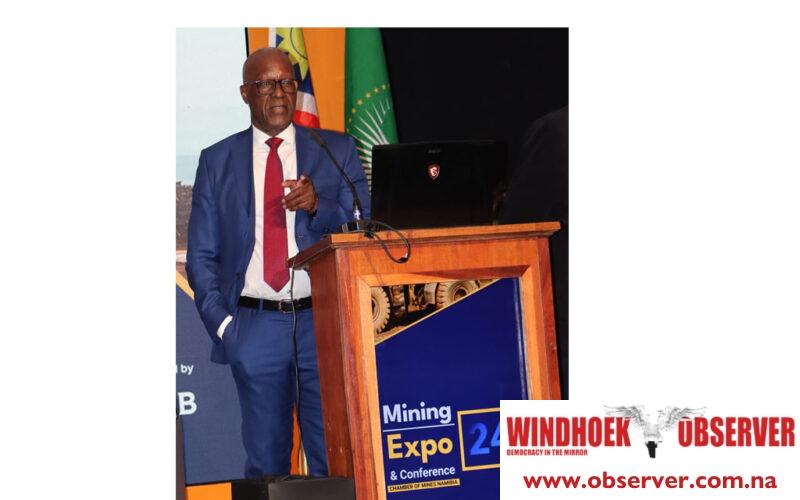Martin Endjala
Only applicants who have completed the minimum exploration work program and shown they have the financial and technical resources to carry out their programs will receive Exclusive Prospecting Licences (EPLs).
The minister of mines and energy, Tom Alweendo, made this statement at the official opening of the 2024 Mining Expo and Conference in Windhoek on Wednesday.
“This is necessary lest we delay mineral discoveries and consequently deprive the Namibian people of their deserved economic benefits,” he said.
According to Alweendo, the ministry found that the majority of applicants who previously received EPLs lacked the necessary skills to carry out their agreed-upon exploration work programs.
“That suggests that our evaluation process is not rigorous enough to only accept applications that have clearly demonstrated the capability to carry out exploration,” he said.
Alweendo said that since December 2023, the ministry has evaluated over 600 new applications.
Since January 2024, the ministry has received more than 400 new applications.
Given this high volume of applications, Alweendo said this is no surprise, but it will take a while to finalise the evaluation of all the applications in a timely manner.
He added that it is not uncommon for an application to take more than a year before it is evaluated.
Alweendo said that, like with EPLs, this trend is equally concerning with mining license applications.
“To ensure that mining license holders comply with their licenses’ terms and conditions, we have introduced a requirement that, henceforth, the terms and conditions of all new mining licenses shall be captured in a Mining Agreement negotiated between the Ministry and the license holder,” he said.
There are currently 162 valid mining licenses, but only 68 are actively mining.
Since the issuance of their licenses, the rest are either on care and maintenance or have not begun any mining activities.
“That is why, and on a continuous basis, we aspire and give our all to improve the effectiveness with which we manage our mineral exploration licensing processes and systems,” he said.
He said the energy transition has triggered a global interest in the exploration, mining, and processing of critical minerals.
As the world tackles the challenge of meeting the demand for these essential minerals, Alweendo has stressed the significance of a globally coordinated effort to ensure the sustainability of their supply chains.
“As a sector, the mining industry is a significant contributor to our Gross Domestic Product (GDP) and continues to be the biggest source of our export revenue. That is why it is important for us to ensure that we continue to provide a policy environment that can continue to attract the required investments in the sector,” he said.
He said that, given the finite nature of the minerals they are working with, it is crucial to maximise the economic benefits derived from the mining industry.
“It is, therefore, our commitment to embrace our role in a sober manner and to continuously improve our efficiency and effectiveness at being good stewards of our mineral resources on behalf of the Namibian people,” he stated.




